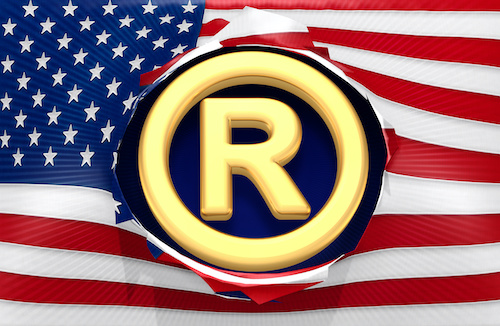Introduced Patent Eligibility Restoration Act of 2023 (PERA) Seeks to Revitalize Patent Eligibility Standards | Knobbe Martens
On June 6, 2023, the Senate Judiciary Committee’s Subcommittee on Intellectual Property introduced a Bill entitled “Patent Eligibility Restoration Act of 2023” (PERA) aiming to amend the law relating to patent subject matter eligibility. [1] The bill seeks to eliminate the so-called “judicial exceptions” to patent eligibility that have led to a significant number of “inventions” being deemed ineligible for patent protection. Additionally, this legislation seeks to clarify the confusion and inconsistency brought about by the Alice/Mayo framework, which has been criticized for its failure to provide a clear and consistent standard for patent eligibility, negatively impacting the protection of innovations in various fields.[2]
Under the Alice/Mayo framework, judicial interpretation of 35 U.S.C. § 101 deems ineligible (1) laws of nature, (2) natural phenomena, and (3) abstract ideas. [3] Under these exceptions, patent ineligible inventions include: fundamental scientific principles, such as gravity or discovered naturally-occurring substances; organisms found in nature or their genetic material; and mathematical formulas, algorithms, and certain approaches to organizing activities, such as some “business methods.”
PERA amends the U.S. Supreme Court’s framework and suggests that the judicial exceptions are a form of unconstitutional judicial activism. Thus, PERA returns to the statutory language of 35 U.S.C. § 101, which does not include terms “abstract idea” or “inventive concept” and similar language, which have become the legal standard for eligibility despite the absence of such language in the patent statute itself.
Further, PERA proposes a more nuanced set of criteria for ineligibility. Section 3 of PERA lists specific exclusions, seemingly aiming to avoid overinclusion while still addressing the underinclusive state of the current framework. By proposing a list of specific exclusions and clarifying the requirements of patent eligibility, PERA aims to refine what can and cannot be patented, especially in the biotechnological and computing arenas. Specifically, PERA enumerates as exclusions to patent eligibility:
- certain mathematical formulae
- mental processes
- unmodified human genes that exist in the human body
- unmodified natural material as it exists in nature
- processes that occur in nature without human activity
- processes that are substantially economic, financial, business, social, cultural, or artistic[4]
Senators Chris Coons and Thom Tillis, along with former USPTO Directors David Kappos and Andrei Iancu, have shown strong support for PERA. Kappos and Iancu, now co-chairs of the Council for Innovation Promotion (C4IP), emphasized how as a result of confusion over patent eligibility the U.S. is “losing its standing as the world’s innovation leader,” and how the bill would drive innovation across “next generation technologies” e.g., in “artificial intelligence, medical diagnostics, quantum computing and telecommunications.”[5]
Recently, the Committee on Intellectual Property, a subcommittee of the Senate Judiciary Committee, discussed the implications of passing PERA, on January 23, 2024, with a majority of witnesses supporting the act.[6] Yet some critics worry PERA could lead to the patenting of natural phenomena, with groups such as the ACLU, the Public Interest Patent Law Institute, and R Street Institute strongly opposing the Bill.[7] For example, a press release published by the ACLU argues that PERA “would allow corporations and other entities to patent laws of nature and products of nature, including naturally-occurring genes, giving them exclusive domain over research, development, and analysis. Such monopolies would result in higher health care costs, deny patients access to their health information, and create new hurdles for developing technologies to fight cancer, pandemics, and much more.”[8] Supporters argue that the Bill would prevent such concerns, reiterating that PERA aims to clarify and improve the patent system for emerging technologies would still require ineligible subject matter to be tied to technological advancement.[9]
This legislative effort on PERA reflects a critical step towards resolving the longstanding issues within the U.S. patent system, emphasizing the importance of patent eligibility standards keeping pace with innovation and new technologies. By addressing the inconsistencies and challenges posed by the current framework, PERA may represent an important step towards a broader interpretation of 35 U.S.C. § 101.
[1] Patent Eligibility Restoration Act of 2023, S. 2140, 118th Cong. (as introduced by Senate, June, 22, 2023).
[2] See, Alice Corp. v. CLS Bank Int’l, 573 U.S. 208 (2014), Mayo Collaborative Services v. Prometheus Labs, Inc., 566 U.S. 66 (2012); see, also Killian v. Vidal, 144 S.Ct. 100 (2023) (cert. denied), 144 S.Ct. 441 (2023) (reh’g denied) (criticizing the Alice/Mayo framework).
[4] Patent Eligibility Restoration Act of 2023, S. 2140, 118th Cong. (as introduced by Senate, June, 22, 2023) (proposed § 101(b) “Eligibility Exclusions”).
[5] Press Release, Chris Coons, Senators Coons, Tillis introduce Patent Eligibility Restoration Act to revitalize American innovation (June 22, 2023).
[6] The Patent Eligibility Restoration Act – Restoring Clarity, Certainty, and Predictability to the U.S. Patent System: Hearing Before the Subcomm. on Intellectual Prop., 118th Cong. (January 23, 2024
[7] Coalition Letter from ACLU, Public Interest Patent Law Inst. et al. to Senators Coons et al. (January 30, 2024) Opposing Patent Eligibility Restoration Act.
[8] Press Release, ACLU, ACLU Condemns Congressional Bill To Patent Human Genes, Nature, and Abstract Ideas (June 23, 2023).
[9] See, The Patent Eligibility Restoration Act – Restoring Clarity, Certainty, and Predictability to the U.S. Patent System: Hearing Before the Subcomm. on Intellectual Prop., 118th Cong. (January 23, 2024).






